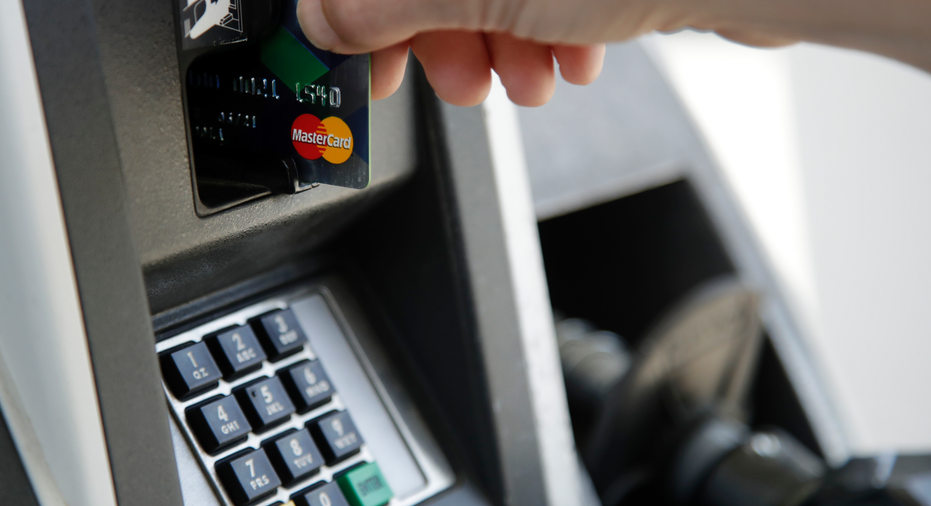How well do you know your credit cards?

Using a credit card doesn't require much effort or experience. Swipe, insert or click and you can charge what you want within the credit limit. Understanding credit cards, however, takes some knowledge.
The more you know about credit cards, how they work and how they fit into your financial life, the more likely you are to use them wisely. Here are some common questions and answers about credit card basics.
HOW DO CREDIT CARDS AFFECT YOUR CREDIT SCORE?
Using a credit card has an impact on two of the biggest factors in your credit score: credit utilization and payment history.
—Utilization is the percentage of available credit currently used. If you have a limit of $5,000, for example, and a balance of $1,000, utilization is 20 percent. Utilization tends to have a negative impact on credit scores once it passes 30 percent.
—Late or missed payments can put a dent in your credit score, although the extent of the damage depends on your overall credit.
How you use credit cards can have a far-reaching impact on your finances. Your credit score affects your ability to borrow money for major purchases such as a car or home as well as how much you'll pay in interest.
HOW DO CREDIT CARDS AFFECT YOUR CREDIT REPORT?
Credit score is calculated from information in your credit report. Most big card issuers report account activity to the three major credit bureaus — Experian, Equifax and TransUnion — every month. But some card issuers report only to one or two, or even none. If you're trying to build credit, look for a card that reports to all three; if it's not clear, contact the issuer. This way, payments will show up in your credit score, regardless of which report was used to calculate it.
MUST YOU CARRY A BALANCE TO HAVE A GOOD SCORE?
If you don't know the answer, you're not alone. A knowledge gap exists for many people, according to Rod Griffin, public education director at Experian.
"They'll hear things like you should use 30 percent of your credit limit to have good credit scores, which is not true," Griffin says.
There's no requirement that you carry a particular balance to achieve or maintain a good score.
DOES 'NO INTEREST' ALWAYS MEAN NO INTEREST?
Promotional language such as "no interest for 12 months" often hides the fact that interest is accruing on a purchase. This is known as "deferred interest," and it's commonly found with credit cards issued by retailers.
With deferred interest, if you pay off the purchase within the promotional period, you won't pay interest. But if any amount in the balance is left over at the end of the promotion, interest can be charged on the entire amount, going back to the time of the purchase. A balance of even 25 cents could mean that you'll have to pay hundreds of dollars in interest.
By contrast, on bank-issued credit cards with 0 percent APR promotions, interest doesn't accrue.
WHAT HAPPENS IF YOU CLOSE A CREDIT CARD?
Closing a credit card account lowers the amount of credit you have available, which can increase credit utilization — and possibly hurt your credit score.
Renee VerCruysse of Perris, California, says she learned that the hard way. "I signed up for a couple of credit cards not knowing what the conditions were," VerCruysse says.
After she closed a card, her credit score suffered. When VerCruysse applied for a car loan, she said she was rejected due to the drop in her score and her short credit history.
If a card doesn't charge an annual fee, you may be better off leaving the account open and making the occasional purchase with it to keep it active.
WHAT CAN A CARD DO FOR YOU AFTER A PURCHASE?
Many credit cards offer substantial protections for qualifying purchases. Check with your card issuer for benefits, which may include:
—Extended warranty can add up to a year of coverage if there's a manufacturer's warranty.
—Purchase protection covers theft and damage up to 90 days after purchase.
—Price protection refunds the difference when items are advertised at a lower price later.
—Return protection offers a refund for items a store won't take back.
Beyond those protections, many cards offer benefits such as rental car insurance, free credit scores or online shopping discounts. Details, and answers to other questions, are in your card member agreement, which you can access online if you threw out the paper version.
This article was provided to The Associated Press by the personal finance website NerdWallet. Melissa Lambarena is a staff writer at NerdWallet. Email: mlambarena@nerdwallet.com. Twitter: @LissaLambarena.
RELATED LINKS:
NerdWallet: Credit card features you wish you had (and might have)
https://nerd.me/credit-card-features



















